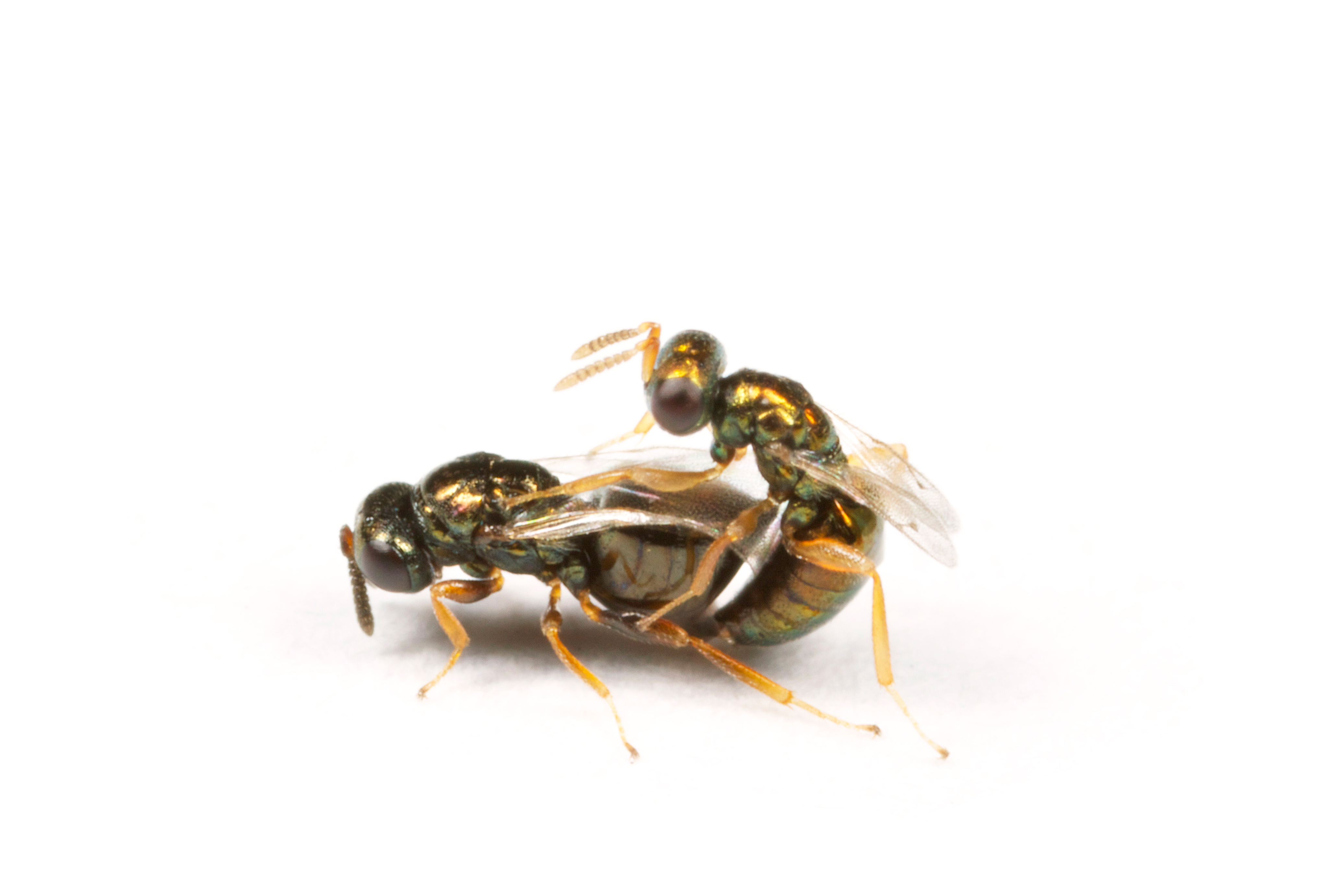Neonicotinoids are widely used insecticides, but their use is subject of debate because of their detrimental effects on pollinators. Little is known about the effect of neonicotinoids on other beneficial insects such as parasitoid wasps, which serve as natural enemies and are crucial for ecosystem functioning. Here we show that sublethal doses of the neonicotinoid imidacloprid impair sexual communication and host finding in the parasitoid wasp Nasonia vitripennis. Depending on the dose, treated females were less responsive to the male sex pheromone or unable to use it as a cue at all. Courtship behaviour of treated couples was also impeded resulting in a reduction of mating rates by up to 80%. Moreover, treated females were no longer able to locate hosts by using olfactory cues. Olfaction is crucial for the reproductive success of parasitoid wasps. Hence, sublethal doses of neonicotinoids might compromise the function of parasitoid wasps as natural enemies with potentially dire consequences for ecosystem services.
Source:
Tappert, L. et al. Sublethal doses of imidacloprid disrupt sexual communication and host finding in a parasitoid wasp. Sci. Rep. 7, 42756; doi: 10.1038/srep42756 (2017).

- Login om te reageren
